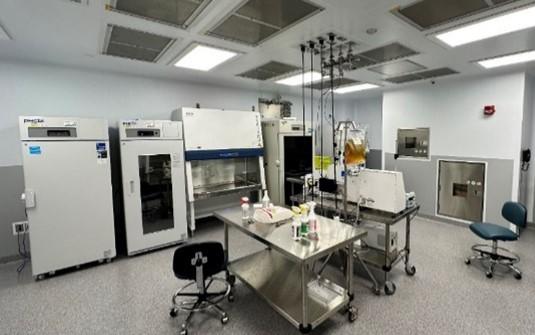Background
Cell-based immunotherapies have had remarkable success in the clinic, specifically in the treatment of hematologic malignancies. However, these strategies have had limited efficacy in patients with solid tumors.
To better understand the challenges involved in the field and how we can facilitate progress, DCTD held two workshops in December 2018 and 2020. The published proceedings (Fogli, 2021) describe the participants’ emphasis on seven research areas of unmet need to further develop cell-based immunotherapy for patients with solid tumors:
- Preclinical and translational research to advance cell therapy for solid tumors (tumor targets, immune cell fitness and persistence, cell trafficking, the immunosuppressive tumor microenvironment, development of preclinical models, and others) in adult and pediatric patients
- Small proof-of-concept studies to rapidly gain knowledge of promising new treatment approaches
- Enhancement of cell manufacturing technologies (new cell expansion methods, genetic engineering including multigene engineering, alternatives to retroviral-based gene delivery, optimization of closed system manufacturing, new strategies for cell product screening)
- Identification of biomarkers and imaging-based detection of response to therapy
- Standardization of cell product characterization through a core laboratory
- Quality Control testing for cell therapy-related reagents (e.g., GMP vectors) needed for manufacturing
- Guidance for investigators on preparing IND submissions
NCI is responding to these major challenges facing the extramural community by leading various initiatives to move the cell therapy field forward.
Cancer Adoptive Cellular Therapy (Can-ACT) Network
Given the lessons learned at the two NCI Workshops on Cell-based Immunotherapy for Solid Tumors and other known challenges in the field of cell therapy, NCI published three RFAs in 2022 to establish the Cancer Adoptive Cellular Therapy (Can-ACT) Network. Read about the structure, member sites, and goals of the Can-ACT Network.
Cell Therapy Production Facility
NCI has expanded its capacity to produce cell-based immunotherapies at the Frederick National Laboratory for Cancer Research (FNLCR). To address the challenges that researchers face manufacturing cell therapies, NCI is making autologous cell therapy products available to intramural and extramural clinical trial investigators.
Manufacturing Facilities
The NCI Biopharmaceutical Development Program (BDP) at FNLCR commissioned four manufacturing suites to provide centralized manufacturing of cell-based products in its cGMP facility. This ensures consistent and standardized processes and increasing reproducibility across studies.
The BDP is producing CAR T cells using a closed manufacturing system and product-associated lentivirus and gamma-retrovirus vectors. The expanded manufacturing suites are flexible to accommodate either cell manufacturing or vector production, depending on demand status.
Manufacturing Workflow
Clinical sites cryopreserve and ship T-cell source material from each patient to the BDP facility, and after a 2-week manufacturing and testing process, receive cryopreserved clinical product ready for infusion back into that patient. This workflow also allows NCI to help manage product chain logistics, which is a significant challenge for investigators.
Manufacturing Support for Clinical Trials
The BDP is supporting the following trials:
- Two multi-center CAR T-cell pediatric clinical trials:
- NCT03971799 - CD33 CAR T cells in pediatric acute myeloid leukemia, with 30 autologous and one allo-matched cell products produced (end of 2024).
- NCT04539366 - GD2 CAR T cells for pediatric neuroblastoma, with eight autologous cell products produced (end of 2024).
- One single-site clinical trial:
- NCT06236139 - STEAP1 CAR T cells for prostate cancer (open end of 2024)
The BDP is producing cGMP viral vectors for cell therapies targeting GPC2, CD22, CD123, STEAP1, and PRODH2 for use in investigator-initiated clinical trials through the NCI Experimental Therapeutics (NExT) Program.
NCI also uses the facility to produce cell therapies using CRISPR-based gene editing and plans to leverage this technology resource to support the Can-ACT Network.
How to Request Cell Therapy Manufacturing Support
Investigators seeking production of clinical grade vector and/or cell therapy products can submit proposals to the NExT Program. NExT accepts applications three times per year (February, June, and October).
Contact
Dr. Jason Yovandich (yovandij@mail.nih.gov)
